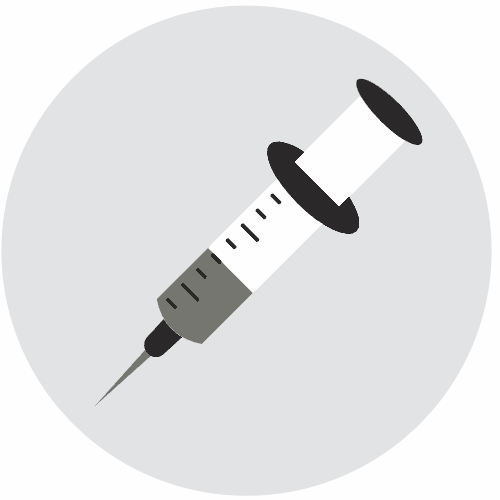Congratulations on brining a new puppy or kitten into your family! For new puppies and kittens, we will perform a series of three exams that are three to four weeks apart. These exams are extremely important to ensure your new puppy or kitten is developing and growing appropriately and to build their immunity with the administration of a series of vaccinations.
Bringing a new pet into your family can be extremely rewarding but also challenging. Our team is here to support you through the process, answer any questions you may have, and partner with you in providing a high-quality and healthy lifestyle for your new pet. Frequent visits to our hospital will help your pet start to learn how to socialize with other animals and new people, develop a relationship with your veterinarian and provide a sense of familiarity for when they visit us in the future.
FIRST EXAMS/VACCINATIONS
Exam One
We recommend bringing your new pet in for their first puppy/kitten exam at around 8 weeks old, if possible. As long as your pet is younger than one year old for their initial exam, we will consider it “exam one” regarding their puppy/kitten shots and wellness plan.
Kitten Exam #1
- FVRCP (Feline Viral Rhinotracheitis, Calicivirus, Panleukopenia) vaccine #1
- Deworming #1
Puppy Exam #1
- DA2PP (Distemper, Adenovirus, Parvovirus, Parainfluenza) vaccine #1
- Deworming #1
Exam Two
The first re-check exam will occur about three to four weeks after exam one, usually when your pet is around 12 weeks old.
Kitten Exam #2
- FVRCP vaccine #2
- Deworming #2
Puppy Exam #2
- DA2PP vaccine #2
- Leptospirosis vaccine #1
- Bordetella vaccine #1
- Deworming #2
Exam Three
A final puppy/kitten exam will be performed three to four weeks later, when your pet is around 16 weeks of age. Your veterinarian will assess their growth and health, finalize their immunization series, and begin discussing the next steps of care in adulthood.
Kitten Exam #3
- FVRCP vaccine #3
- FeLV vaccine
- Rabies vaccine
Puppy Exam #3
- DA2PP vaccine #3
- Leptospirosis vaccine #2
- Bordetella vaccine #2
- Rabies vaccine

Spaying & Neutering
Your veterinarian will suggest a plan for your pet on when it is most beneficial for them to undergo a spay/neuter procedure. This will be discussed during your pet’s initial series of exams and our team is happy to answer any questions or discuss any concerns you may have.
Potty-Training
- Be sure to stick to a strict schedule (first thing in the morning, last thing at night, after spending tie in the crate, immediately after waking up from a nap, after eating and drinking, or if the time since the last potty break exceeds 2-4 hours).
- Place your puppy’s crate near an exterior door for quick relief. Make sure the crate is big enough for the puppy to stand up, turn around and lay down, but not big enough for them to have a separate area to have accidents.
- Reinforce good behavior by praising your puppy for doing the right thing. Praise with words, pats, and attention. Don’t scold your puppy for having accidents.
Behavior training
- Chewing is a calming mechanism and stress-reliever for puppies and adult dogs. Make sure to have chewing toys available around the house and praise your puppy when they choose to chew the toys instead of household objects.
- Prevent barking behaviors by ignoring your puppy when they bark and praising them when they are quiet.
- Training your dog to sit helps them fight impulse barking when they are trying to ask for something.
- To prevent begging behaviors, feed your dog immediately before you eat, create a cozy go-to spot for them near the table where they can be comfortable and praise your puppy when they don’t beg.
Feeding
- The number of times you feed your puppy per day depends on their age. Adjust the amount that is being fed per portion depending on your pet’s size and the number of times per day that they are eating.
- 6-12 weeks old = Feed 4x per day
- 3-6 months old = Feed 3x per day
- 6-12 months old = Feed 2x per day
- 1+ year old = Feed 2x per day
- When trying to choose the correct food, select an age, breed, and health-specific formula that meets AAFCO standards.
- Ask your veterinarian for specific diet specifications.
- Avoid harmful foods such as dairy, chocolate, grapes, and sugary foods.
Home Preparation
- Purchase supplies for your kitten to feel welcome in your home, such as scratch posts, litter boxes, cat carriers, and food and water bowls. Stain and odor remover may also be good to have on hand while your kitten acclimates to their new home.
- Move toxic plants, cleaners and sprays, and any dog food out of reach.
- Additional supplies include beds and blankets, grooming supplies, toys, and pheromone products.
Playtime
- Have plenty of toys available for your kitten, such as balls, jingles, anything on a string, and cotton chew toys.
- Avoid playing with your hands to avoid injury and aggressive play when your kitten is fully-grown.
- Playing with your kitten strengthens your bond with them, allows them to release energy, and helps them to build trust and comfort.
- Kittens should play at least 20 minutes per day. We recommend playing with them twice a day, early in the morning and at night.
Feeding
- Feeding frequency for kittens depends on the type of food that they are eating.
- Dry food only = Leave available at all times
- Wet food only = Provide at least four times per day
- Combination = Feed wet food twice daily and leave dry food available at all times
- When trying to choose the correct food, select an age, breed, and health-specific formula that meets AAFCO standards.
- Ask your veterinarian for specific diet specifications.
- Avoid harmful foods such as raw meats, raw eggs, raw fish, grapes, chocolate, and dairy.





